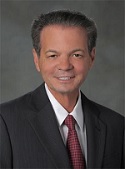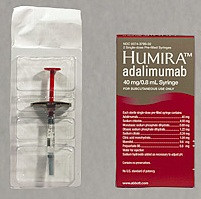 |
| AbbVie CEO Richard Gonzalez |
AbbVie ($ABBV) CEO Richard Gonzalez took a bit of a pay cut in 2015, and his 2016 performance-pay target is lower than last year's. But don't fret about his bank accounts: Gonzalez still racked up compensation of more than $20 million, putting him among the biopharma industry's highest-paid executives.
Gonzalez's hefty pay package was justified because 2015 "was an exceptional year" for AbbVie, the board's compensation committee argues in the company's proxy statement, filed Wednesday. Its blockbuster anti-inflammatory drug--which starts losing patent protection at the end of this year--delivered $14 billion in global sales, the proxy points out, and Gonzalez engineered the $21 billion buyout of Pharmacyclics, getting his hands on the up-and-coming blood cancer drug Imbruvica. And then there was Viekira Pak, the hep C cocktail approved by the FDA in late 2014, and in Japan last year.
Gonzalez's 2015 compensation package included a $1.59 million base salary and $2.98 million in incentive pay, plus $9.75 million in stock awards and $3.26 million worth of options. Almost $2.45 million growth in his pension value and $791,000 in other compensation--including almost $500,000 worth of personal travel on the company aircraft--bring the total to $20.81 million.
That's down from $22 million in 2014, but the mix was different that year. His pension value grew by $5 million then, more than twice its 2015 increase, and incentive pay was about $500,000 higher. But stock and adoption awards both ticked upward from 2014 to 2015, with $1.5 million growth in the former, and about a $500,000 increase in the latter. Gonzalez used the corporate jet even more in 2014, making up more than $500,000 of his other compensation.
The rest of AbbVie's executive team received between $6.6 million (R&D chief Michael Severino) and $7.6 million (CFO William Chase).
Changes are coming for 2016, however, with Gonzalez's package shifting toward long-term incentive pay--and toward a lower target for direct compensation. The board wants to cut his annual incentive pay target to 150% of his base salary from 200%, and reduce the value of his long-term incentive pay to $11.7 million from $13 million.
The mix of his equity awards is also set to change, with 40% in "performance shares" that can vest at 250% of the target amount. Previously, his share awards were all paid in restricted stock awards with a potential payout of 150% max. All that is based on new performance targets, with EPS joining return on equity and stock price.
 We'll see next year how those changes play out in Gonzalez's total as AbbVie attempts to fight off the launch of Humira biosimilars and works to amp up sales of Imbruvica. Gonzalez took a big risk with the Pharmacyclics buyout; justifying the $21 billion price will require big growth for the cancer drug, and analysts have been skeptical of his lofty Imbruvica sales goals. So far, however, the drug has racked up the new indications needed to fuel that growth, with a first-line CLL nod just last week.
We'll see next year how those changes play out in Gonzalez's total as AbbVie attempts to fight off the launch of Humira biosimilars and works to amp up sales of Imbruvica. Gonzalez took a big risk with the Pharmacyclics buyout; justifying the $21 billion price will require big growth for the cancer drug, and analysts have been skeptical of his lofty Imbruvica sales goals. So far, however, the drug has racked up the new indications needed to fuel that growth, with a first-line CLL nod just last week.
Meanwhile, the hep C-fighter Viekira Pak has struggled to grab hold in a market dominated by Gilead Sciences' ($GILD) Sovaldi and Harvoni, and an FDA warning of potential liver injury last fall put more of a damper on its prospects. For the fourth quarter, the drug brought in $197 million, more than $80 million less than analysts expected. And it's facing yet another rival now that Merck & Co. ($MRK) has launched its own cocktail, Zepatier.
- see the AbbVie proxy
Special Reports: The top 20 highest-paid biopharma CEOs - Richard Gonzalez, AbbVie | Top 15 pharma companies by 2015 revenue - AbbVie